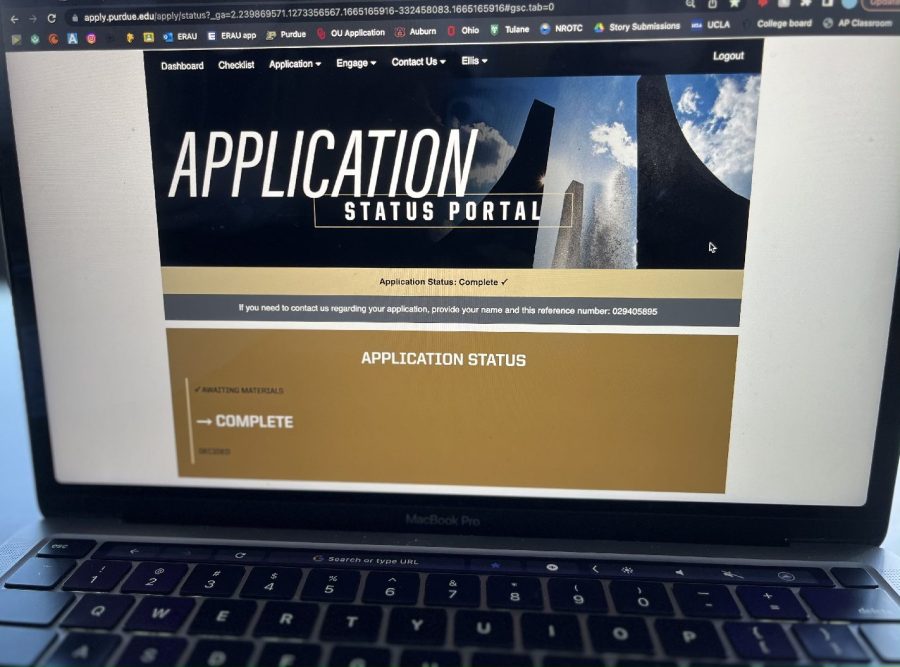The Pressure of Applying to Colleges
It’s no secret that college applications put an immense amount of pressure on high school seniors. From the pressure to attend a prestigious university to the pressure to definitively pick a career at age 17, applications seem to take the form of many students’ worst nightmares: stress, the end of childhood, and commitment.
Asking kids what career they want to hold for the rest of their lives is intense. Wanting kids to virtually have their entire future figured out at a time when they are just starting to understand themselves as human beings is a big ask — especially when it’s made out to be a decision that determines one’s life trajectory.
Choosing a major has a lot of pressure put into it. Colleges don’t seem to make it known that majors can be switched and college is really the time in your life when one is supposed to finally figure out what they’re good at or want to pursue. Having some semblance of an idea before going to college is ideal, but it’s not a requirement. According to the U.S. Department of Education, around 30% of undergraduates who had declared a major had changed theirs at least once in 2017. That isn’t an insignificant number — many students change their minds after taking courses and discovering their interests.
If the pressure of simply getting into college isn’t enough, there’s the added feeling of pressure to attend a top university. For high-achieving students, parents, friends, and teachers seem to drill in the idea that the only path to success is through a top-ten school that has a less than 10% acceptance rate.
The Ivy League schools are a prime example of this. Their acceptance rates are getting lower and their student body is becoming more and more elite. Attending an Ivy League school is made out to be the best possible way to succeed in the world, even if that type of education or style or school doesn’t appeal to or work for some students.
Of course, there is something to be said about the prestige of having a degree from a top university and the preconceived notions that people and employers hold — getting a job might become a little more attainable with a Bachelor’s from Princeton rather than a community college.
But is it worth it? Often, it seems it’s not. Community college works better for a lot of students and also results in hundreds of thousands of dollars less debt in the future. If having a college’s name on your resume is the only reason you’re applying to one, it might be important to step back and rethink the options. Every school embraces a different type of learning, environment, and social life. There’s always a school that fits someone’s needs, regardless of its status.
The stigma and stereotypes surrounding community college prove to be another problem. People see community college as a bad thing or as a lesser education. But it isn’t, necessarily. College often isn’t where you go, but what you do with where you go. Attending a top school simply for the name isn’t necessarily better than attending a lesser-known school and working hard to get scholarships, graduate with honors, or build connections in your field.
But this stigma is what fuels the pressure that’s put on students. The internet and peers create an idea that students have to attend top schools, when in reality that isn’t necessary in order to be successful.
Overall, applying to college puts immense amounts of pressure on students in the process of opening all kinds of doors to youth with potential. But it’s important for students to realize that there are so many more options than just top schools — everyone thrives in different environments and understanding one’s own strengths and weaknesses can help choose the college that’s best for you.
Sasha is a senior at Truckee high school and enjoying her first year of Journalism. Her favorite subjects to write about are sports and current events,...

